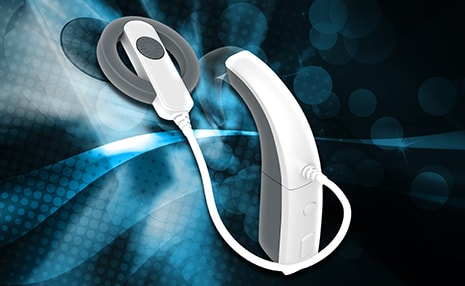Parents of children who are deaf or hard of hearing will find relief in a new study being conducted by scientists at the Ohio State University Wexner Medical Center
Orange County, CA - April 3rd 2017 - A cochlear implant is an electronic medical device that functions in place of the damaged inner ear, or cochlea- unlike hearing aids which only amplify existing sounds. This implant, first used over 30 years ago, is able to provide sound signals to the brain. Although useful, it has been indicated individuals utilizing the device tend to experience a slow and arduous learning curve than those without.
In the Ohio State study, lead researcher Derek Houston saw the struggle parents experienced when communicating with their children, despite acquiring a fully functioning implant. Though able to hear, many children continued to struggle with language development skills due to the disparity in not being able to lean naturally. “We want to understand why the language of children with cochlear implants tends to be delayed compared to typically-developing children,” said Houston. To find the solution, he conducted a study mapping the reactions of children with both types of hearing absorption methods and the rate of retention and adaption of certain words and objects. The research team set up a special play room, with 6 cameras installed to oversee activity between parent and child. In the room lay toys upon a table for play, parents would say the name of the object and its purpose upon use. Both the children and parents wore cameras to track eye movement when unveiling a new object.

By employing these trackers, researchers were able to concentrate on the child’s focus and reaction as they saw and touched each object, as well as their initial reactions to hearing the item name spoken. By employing tactics found in the study, researchers believe parents will be able to better communicate with their children. For instance, simply narrating day to day actions displayed improvement in long term cognitive development and vocabulary. Overall, the objective of the study was to ultimately identify how hearing loss affects children’s basic, yet complex, interactions with their parents. Researchers intend to expand on these findings to decide the next course of action in the development of an efficient teaching method for deaf children and account for the perceived learning curve. Dr. Houston says he hopes to broaden his research to better teach varying forms of learning deficits such as autism or attention deficit disorder.
Contact Ampronix:

Email: info@ampronix.com
International Sales: +1 949-273-8000
Domestic Sales: 1800-400-7972 for US and Canada
Follow Us:
Share This Article:
View our Product Catalog Online Here
About Ampronix
Ampronix is a renowned authorized master distributor of the medical industry's top brands as well as a world-class manufacturer of innovative technology. Since 1982, Ampronix has been dedicated to meeting the growing needs of the medical community with its extensive product knowledge, outstanding service, and state-of-the-art repair facility. Ampronix prides itself on its ability to offer tailored, one-stop solutions at a faster and more cost-effective rate than other manufacturers. Ampronix is an ISO & ANSI/ESD certified facility. To learn more go here.
Parents of children who are deaf or hard of hearing will find relief in a new study being conducted by scientists at the Ohio State University Wexner Medical Center Orange County, CA – April 3rd 2017 – A cochlear implant is an electronic medical device that functions in place of the damaged inner ear, or cochlea- […]



